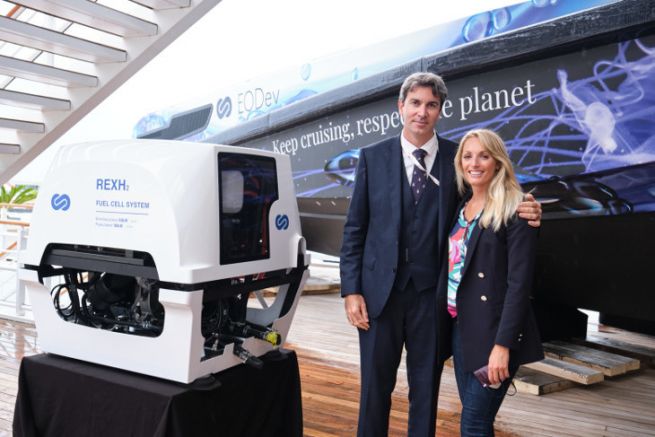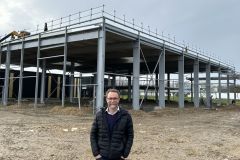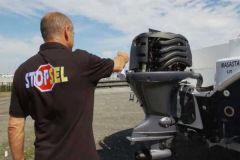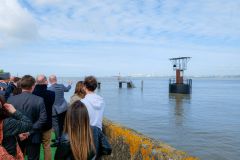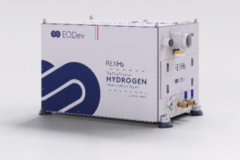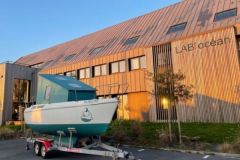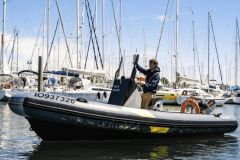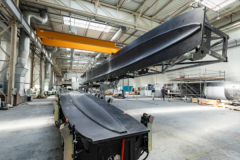From Energy Observer to EODev
Launched in April 2017, the catamaran Energy Observer had set itself the task of demonstrating the value of the hydrogen fuel cell for powering and propelling ships. The success of its navigations gave rise to Energy Observer Development (EODev), with the aim of opening up these solutions to the general public. The company now employs 40 people. "Our goal is to use Energy Observer's solutions to industrialize them and to be able to produce, maintain and provide after-sales service. We have worked with Toyota on their batteries with which there are identical components, and we have brought marinization and management. For example, one of the main enemies is air pollution in the ports, which hinders the operation." explains Jérémie Lagarrigue, Director General of EODev.
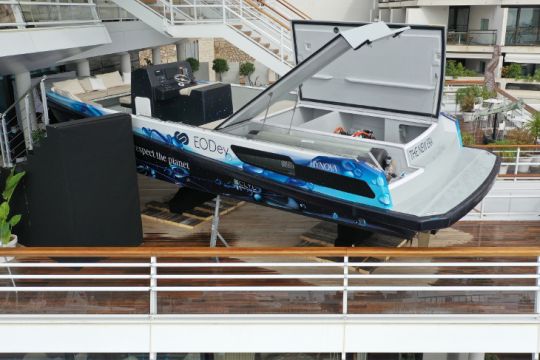
Retrofit of ship propulsion and change of generator sets
While EODev's communication in the yachting sector is based on the launch of the Hynova40 prototype, a new boat equipped with the REXH2, the company's initial development is mainly focused on the retrofit of existing boats with hydrogen electric hybrids or the replacement of diesel generators. "We want to offer users the possibility of modifying their engine or generator installation to switch to hydrogen. Today, most of the demand comes from the yachting industry. Up to 30 to 40 meters, it is possible to use hydrogen-electric hybrids for propulsion and beyond 40 meters, mainly for auxiliary equipment. The REXH2 range extender can be used from tender to dayboat, as demonstrated with Hynova" indicates Jérémie Lagarrigue. The REXH2 battery weighs 300 kg excluding the chassis for a power of 100 kW, which can be switched in series up to 1 MW.
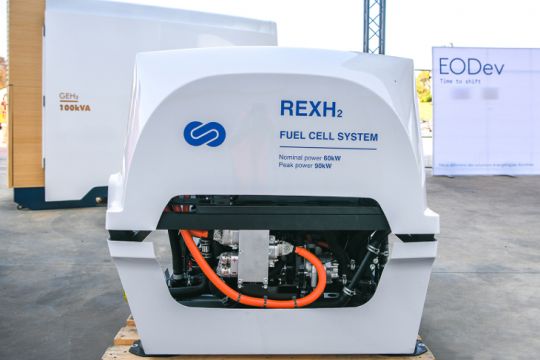
Mature hydrogen for pleasure boating
When asked about the maturity of the technology and the availability of hydrogen fuelling stations, EODev's Director General shows an unfailing conviction. "Gaseous hydrogen technology poses storage problems for large powers, but it is mature for small and medium powers, from 30 kW to 1 MW. The price is perfectly between the cost of a diesel propulsion and a battery electric solution, and it is 4 to 8 times lighter than battery solutions, without being limited by recharging times. In operation, hydrogen is cheaper than diesel for a private individual who pays taxes. For the stations, with EODev we already have a dozen projects underway. And there are few technologies with as many investments announced every day for infrastructures as there are for green hydrogen. Our floating stations can be delivered in 4 months and are profitable from 100 kg of hydrogen per day. All it takes is one passenger ship a day."
To continue its development, EODev raised 20 million euros. They will be used in particular for the assembly of a series production line for hydrogen generator sets and REXH2s in France. This will be operational in the summer of 2021. In the meantime, EODev already has the capacity to produce a few dozen range extenders by me. A distribution and maintenance network is being structured with the signature of a 1st partnership with ENERIA - Caterpillar. As for hydrogen recharging stations, a network should be set up in the South of France. "We work with ports, institutions and the private sector, also in the river sector. The maritime sector also has a pioneering role to play in helping the development of hydrogen on land." concludes Jérémie Lagarrigue.

